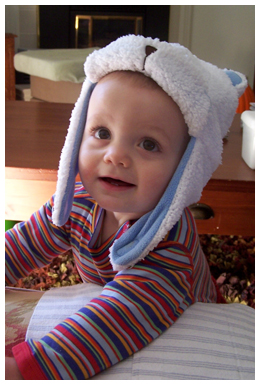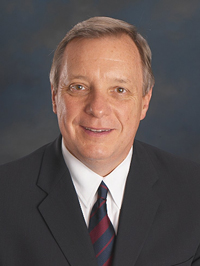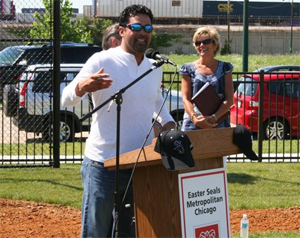A Wider World for kids with autism
by Matt McAlear
 Earlier this year Easter Seals Bay Area was contacted by the PBS show A Wider World. Roger McCarville, the show’s host, had heard about Easter Seals Bay Area’s Early Intervention Autism Project and wanted to feature us on his show.
Earlier this year Easter Seals Bay Area was contacted by the PBS show A Wider World. Roger McCarville, the show’s host, had heard about Easter Seals Bay Area’s Early Intervention Autism Project and wanted to feature us on his show.
The Early Intervention Autism Project was the recipient of a Safeway Empowerment grant last year. The grant allowed us to expand the program from beyond the pilot stage into communities across our service area. We were thrilled that A Wider World wanted to track our progress.
What was even more thrilling was to see the finished product — the PBS show recently aired in twelve different markets! Roger, the host of the show, is an individual with a physical disability. He dedicates his show to, in his own words, “giving hope to the challenged by showing them that there are others like them who have overcome obstacles and misconceptions in order to lead normal, fulfilling lives.”
Roger interviewed one of our Early Intervention staff, and he talked with a family receiving our services. He interviewed me for the piece too. Throughout the day, both on and off camera, Roger went beyond the typical interview questions. He made a genuine effort to connect with each of us individually.
Roger kept us laughing all day, and he was a pleasure to work with. He was truly interested in the work we do and the individuals we serve everyday through the Early Intervention Autism Project. We’ve received numerous calls and emails of inquiry, kudos, and support ever since the show aired on PBS, and subsequently on YouTube. Thanks to Roger and his team at A Wider World for their support of Easter Seals, Safeway and our work with the ASD population!







 On World Autism Day this year (April 2), Sen. Richard J. Durbin (D-IL), introduced a bill that would increase vocational opportunities for people on the autism spectrum. The bill, called the
On World Autism Day this year (April 2), Sen. Richard J. Durbin (D-IL), introduced a bill that would increase vocational opportunities for people on the autism spectrum. The bill, called the  The reunion with Ozzie was great, he recognized me right away! It would be greater if the White Sox were on a roll, though. I grew up on Chicago’s south side and have always been a White Sox fan, and while I am writing this they are in second place. No matter what happens the rest of the season, I will always be a fan of this
The reunion with Ozzie was great, he recognized me right away! It would be greater if the White Sox were on a roll, though. I grew up on Chicago’s south side and have always been a White Sox fan, and while I am writing this they are in second place. No matter what happens the rest of the season, I will always be a fan of this  Eunice Kennedy Shriver, an advocate for people with physical and developmental disabilities, died yesterday. Shriver was a co-founder of the Special Olympics, an organization she hoped would develop confidence and social skills for people with disabilities.
Eunice Kennedy Shriver, an advocate for people with physical and developmental disabilities, died yesterday. Shriver was a co-founder of the Special Olympics, an organization she hoped would develop confidence and social skills for people with disabilities.